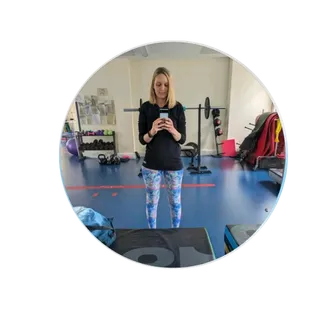Helping You Work With Your Brain, Not Against It
ADHD coaching for real life, whether you’re newly diagnosed, feeling overwhelmed, or just trying to hold it all together.
1:1 support, live group sessions, and practical tools that actually fit how your brain works.
New affordable online coaching launching in

Helping ADHD Minds Find Their Own Way
I’m Fraser, an ADHD coach, father, and former corporate leader who didn’t realise I had ADHD until I was 43.
Like many late-diagnosed adults, I spent years thinking I just wasn’t good enough. I pushed myself hard, burnt out often, and masked my struggles to keep up with a world that didn’t quite fit.
When I finally got diagnosed, everything changed. I stopped blaming myself and started building a life that worked for my brain. Now I help others do the same.
I work with adults who feel overwhelmed, newly diagnosed, or stuck, offering practical strategies, honest conversations, and a place where they don’t have to explain themselves.
Whether it’s 1-to-1 coaching or a structured group programme, the goal is always the same:
To help you feel understood, and to help you move forward.
Does any of this
SOUND FAMILIAR?
You always feel behind, even when you’re working flat out.
There’s a constant mental to-do list running in the background, and even small tasks feel like a mountain.
You’ve been called lazy, disorganised, or too sensitive.
But deep down, you know you’re trying harder than most people realise.
You procrastinate, overthink, and crash hard when you finally stop.
It’s not just time management — it’s emotional exhaustion, decision fatigue, and never feeling like you’re doing enough.
You’ve Googled ‘Do I have ADHD?’ more than once.
Maybe you’ve been diagnosed. Maybe not. But you know something isn’t working, and you’re ready for support that actually makes sense for your brain.

Our Mission
Helping ADHD Adults Feel Less Alone — and More in Control
Whether you're newly diagnosed or have been masking for years, our mission is simple:
Help you understand your brain, stop the spiral of shame, and build a life that actually fits.
How I Can Help
1:1 ADHD
Coaching
Get tailored support with practical tools, calm accountability, and a coach who gets how your brain works.
Perfect if you're ready for personalised help, but not sure where to start.
6-Week ADHD
Group Programme
Live coaching, structure, and a toolkit that actually fits your brain — all in a space where you realise you're not the only one.
Ideal if you want guidance and to hear from others like you.
Free ADHD
Strengths Report
Not ready for coaching? Start with a personalised analysis based on your ADHD traits — and see what’s actually working in your brain.
A zero-pressure way to get insight, hope, and clarity.
What others are saying

"Fraser is awesome"
Fraser is awesome and I enjoyed working with him. He taught me so much and in a way that makes sense to me. He's given me a new found confidence.


"My life changed forever"
He taught me so much and in a way that makes sense to me. He's given me a new found confidence.


"Life was SO hard"
Fraser helped me to turn the waltzers into teacups and calm the chaos, I'm still spinning and dizzy at times but now I get to enjoy the views around me!

Fraser & Cubic write a blog to help you with your ADHD if you aren't ready to reach out for help just yet.

Why Does Coffee & Caffeine make me Tired or Sleepy ADHD
The confusing relationship between ADHD and caffeine
If you live with ADHD, you’ve probably had that moment where you reach for a cup of coffee expecting a burst of energy, only to find yourself yawning half an hour later. Instead of buzzing around with sharper focus and higher energy levels, you feel groggy, almost as if someone has sneaked a sleeping pill into your latte.
This is one of those strange quirks of ADHD brains. While most people experience caffeine as a stimulant, many of us with ADHD feel the opposite effect. It can leave us questioning our brain chemistry, our sleep habits, and whether the world’s most popular legal drug is actually our friend or foe.
I remember the first time I noticed it. I was in my late twenties, sat in a meeting after three strong coffees. Everyone else seemed more awake, but I could barely keep my eyes open. I assumed I was just burnt out, but years later I found out there was more to it.
Let’s dive into why this happens, what the science says about caffeine intake for ADHD, and how you can figure out whether coffee is helping or hindering you.

How caffeine usually works in the brain
Caffeine’s main trick is blocking something called adenosine receptors. Adenosine is a chemical that builds up in your brain throughout the day and tells you when you’re tired. By acting as a receptor antagonist, caffeine stops those receptors from recognising adenosine, which delays feelings of tiredness.
That’s why most people get a boost of mental clarity after a morning cup of coffee. Their dopamine levels also rise slightly, giving a rewarding kick that pairs nicely with increased alertness.
But, as you may already know, ADHD brains don’t play by the usual rules.

ADHD brains and the opposite effect
One of the defining features of ADHD is a different relationship with dopamine. Our brains often have lower baseline dopamine levels, which affects motivation, focus, and energy regulation. Caffeine interacts with this system in unpredictable ways.
Instead of creating a stimulating buzz, it can sometimes trigger a calming effect. For some, it feels almost like a mild ADHD treatment — similar to the effect of stimulant ADHD medications. For others, it pushes them straight into physical exhaustion.
That’s why two people with ADHD can have completely different reactions to the same cappuccino.

My own experiments with caffeine
When I was first diagnosed at 43, I decided to play scientist with my caffeine intake. I kept a rough log of when I drank coffee, how much, and how I felt afterwards.
Morning coffee at 9am: Essential. Without it, I struggle to get moving, almost like my brain chemistry needs that first jolt to line things up for the day.
Mid-afternoon coffee: Avoided at all costs. If I drink caffeine after lunch, I’m guaranteed poor sleep, racing thoughts, and what I can only describe as a late-night “ADHD pinball session” in my head.
Decaf coffee on “ADHD-heavy” days: If my ADHD symptoms are particularly strong, I often switch to decaf. It gives me the comfort of the ritual without adding more components into my already busy system.
Peppermint tea in the evening: My go-to. Not only does it avoid the rebound effect of caffeine, but it also helps me digest my usually quite large dinner. That makes it easier to settle into sleep, which is one of the biggest challenges for ADHD brains.
The pattern was clear — my ADHD brain has a different reaction depending on the time of day and what else is going on with my energy levels.
The rebound effect
Caffeine’s short-term boost often comes with a rebound effect. Once it wears off, adenosine floods back in and you crash harder. For people with ADHD, who are already juggling unstable energy levels, that rebound can feel brutal.
This explains why you might feel awake for an hour after your latte, then suddenly hit with overwhelming fatigue. Pair that with inconsistent sleep habits, and the result is a cycle of drinking more coffee to fight the crash, which only worsens the long-term problem.

Coffee, ADHD medications, and side effects
If you’re taking stimulant ADHD medications like Elvanse or Concerta, adding caffeine into the mix can be a double-edged sword. Both work on similar pathways in the brain, and combining them can lead to unexpected side effects.
For me, when I was on Elvanse, even one extra cup of coffee pushed me into jittery restlessness. My brain felt busy, but not productive. On the other hand, some clients I coach say coffee barely touches them unless they’ve already taken their medication, in which case it helps extend focus a little longer.
This is why I always remind people: if caffeine is having a big impact on your energy levels, bring it up with your healthcare provider. They can help you look at whether your caffeine intake is clashing with your treatment plan.

The role of sleep habits and poor sleep
Another big piece of the puzzle is sleep. ADHD brains are notorious for inconsistent sleep habits — late-night scrolling, overthinking, or hyperfocus marathons that stretch into the small hours. If you’re starting the day with a sleep debt, caffeine might not work the way you expect.
Instead of giving you energy, it can highlight just how tired you already are, dragging you into feelings of tiredness rather than mental clarity. I’ve lost count of how many mornings I’ve thought, “coffee will fix this,” only to end up staring blankly at my laptop while yawning through emails.
The cruel irony is that late caffeine intake can also worsen poor sleep by delaying when your body recognises it’s bedtime. That means you wake up groggy again the next day… and the cycle continues.
Gentler options that help
Instead of leaning on green tea, I’ve found that peppermint tea fits better into my ADHD treatment toolkit. It doesn’t give me more dopamine levels or mental clarity, but it offers a reliable calming effect that sets me up for sleep. For me, that’s far more valuable than squeezing in one more jittery cup of coffee before bed.
Some clients swear by green tea or other herbal teas, but the important thing is experimenting to find what works for your brain’s unique wiring.

Why ADHD brains react differently
The short answer is: our brain’s unique wiring. ADHD brains regulate alertness and energy in less predictable ways. Where caffeine would normally trick the brain into ignoring adenosine, in some of us it seems to trigger a chain reaction that results in opposite effects.
Think of it like this: the same key (caffeine) is being used in slightly different locks (our neurodivergent brains). For some, the door opens to alertness. For others, it leads to a room of yawns and physical exhaustion.
What makes it even trickier is that caffeine doesn’t just affect dopamine and adenosine. It also influences cortisol, the stress hormone, which can spike or dip depending on your body chemistry. This may explain why some ADHD brains feel a sharp burst of focus, while others experience mental fog or even anxiety as a side effect.
The science is still catching up
Although there’s growing research into ADHD treatment, the exact relationship between caffeine and ADHD symptoms is still not well understood. Some studies suggest that small amounts of caffeine can improve focus in ADHD brains, while others highlight the risks of poor sleep and heightened anxiety.
What we do know is that ADHD people are more likely to experience a different reaction than the general population. And like so much with ADHD, what works for one person may completely backfire for another.

Practical tips for managing caffeine with ADHD
Here are some ideas I’ve found useful personally and through coaching clients:
Track your caffeine intake
Keep a simple log for a week. Note what time of day you drink coffee or tea, how much, and how you feel afterwards. Patterns often show up quickly.Experiment with timing
Many ADHD brains handle morning coffee better than an afternoon cup of coffee. Try cutting off caffeine after midday and see if your sleep improves.Try decaf as a middle ground
Decaf coffee can keep the ritual and comfort without the stimulant side effects. I often use it on days where my ADHD symptoms are particularly strong. It’s also a helpful way to reduce overall caffeine intake gradually, which avoids the withdrawal headaches that can come from quitting suddenly.Peppermint tea for evenings
It won’t alter dopamine levels, but it provides a calming effect and supports digestion, helping with better sleep. Herbal options like chamomile or rooibos can also be worth experimenting with if peppermint isn’t your thing.Discuss with your healthcare provider
Especially if you’re on ADHD medications. They can advise on safe levels of caffeine intake and whether adjustments are needed. Having that conversation also helps you make sense of side effects that might otherwise feel random or confusing.
My takeaway after years of experimenting
For me, coffee is now a morning essential, not an all-day strategy. I’ve learned that my ADHD brain doesn’t get consistent benefits from caffeine, and the crashes usually outweigh the perks later in the day. These days, if I need focus, I rely on structured ADHD treatment strategies rather than chasing energy levels through espresso shots.
And when I do fancy a decaf or herbal tea, I choose it for the ritual and comfort rather than expecting it to sharpen my brain chemistry. If it happens to give me a boost, great. If it makes me sleepy, well… at least I’ve enjoyed the cup.
Closing thoughts
If you find coffee makes you tired or sleepy, you’re not broken or weird. It’s simply one of the many ways our ADHD brains interact differently with the world. The effects of caffeine aren’t universal, and recognising your own patterns is far more valuable than following what’s “normal.”
Experiment with your caffeine intake, notice your different reactions, and remember that your brain’s unique wiring deserves respect. Whether you thrive on morning coffee, stick to decaf, or wind down with peppermint tea, what matters is finding what supports your focus, energy, and wellbeing.
Call to action
If you’ve been nodding along to this, you might enjoy diving deeper into how your ADHD shows up in daily life. I’ve created a free ADHD Insight Report that helps you spot your unique strengths and challenges.
If you’re ready for more structured support, you can also look at:
1-to-1 ADHD coaching — personalised strategies to help you manage energy, focus, and the everyday chaos without burning out.
My 6-week ADHD course — a practical, affordable programme designed for professionals who want to understand their ADHD and finally make life feel manageable.
And of course, if you have questions, just reach out. I write these blogs because I care, and because nobody with ADHD should feel stuck without support.
STILL NOT SURE?
Frequently Asked Questions
Do I need a formal ADHD diagnosis to join or get coaching?
Nope. Many people I work with are still figuring it out or self-identify based on lived experience. If you resonate with what you’ve read, you’re welcome here.
What’s the difference between 1:1 coaching and the group programme?
1:1 coaching gives you personalised support, we focus completely on your life, goals, and challenges.
The 6-week group programme gives you live guidance alongside others, so you hear real examples and realise you’re not the only one.
I’m not sure what I need yet. Where should I start?
That’s totally normal. The best starting point for most people is the free ADHD Strengths Report. It gives you insight without pressure, and from there, you can decide if coaching or the course feels right.
Is this like therapy?
No, coaching is future-focused and practical. I’m not a therapist, and I don’t work with severe mental health distress. But I do work with people who feel stuck, lost, overwhelmed, or unsure how to manage day-to-day life with ADHD. If we hit something therapy-related, I’ll help you find the right support.
What if I miss a live session in the group programme?
It happens! You'll still get the tools and resources from that week, and I’ll send a recap. This programme is built with ADHD in mind, so flexibility is baked in.
Can I do both the group and 1:1 coaching?
Absolutely. Many people start in the group to get foundational tools and then move into 1:1 for deeper support. Or vice versa. There’s no wrong order, just what works for you.
How much does it cost?
Group Programme: £200 for the full 6 weeks
1:1 Coaching: £100 per session
Free ADHD Strengths Report: £0 — it’s truly free, no catch
What if I’m not ready to commit yet?
That’s okay. Sign up for the free report, or drop me a message with your questions, follow me on social. No pressure. No guilt. Just support when you’re ready.
Reach Out, No Pressure, No Stress
Whether you're curious about coaching, unsure where to start, or just want to ask a question — I'm happy to hear from you. There's no pressure to sign up or commit. Just send a message and I’ll get back to you soon.
07904 711781

